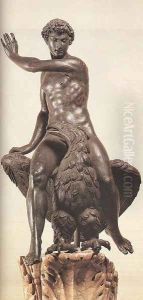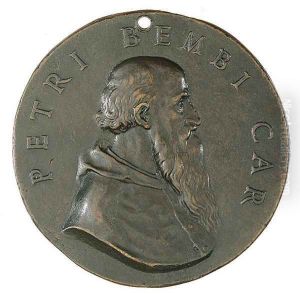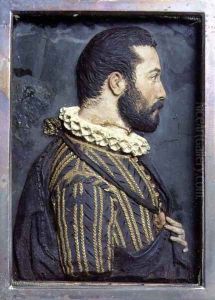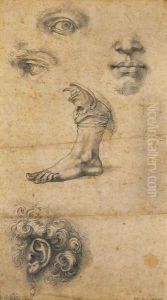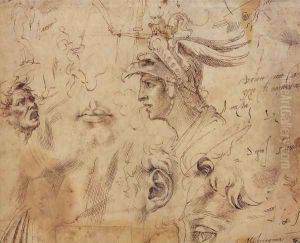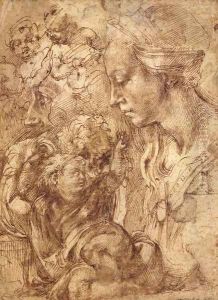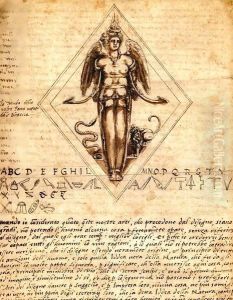Benvenuto Cellini Paintings
Benvenuto Cellini was an Italian goldsmith, sculptor, draftsman, soldier, musician, and artist who became one of the most important artists of Mannerism. He was born in Florence, Italy, on November 3, 1500, into a family of musicians. Cellini was initially trained as a goldsmith and musician, but he soon found his passion in sculpting and metalworking. His life was as dramatic and eventful as his art, filled with both creative triumphs and personal controversies. Throughout his life, Cellini was known for his masterful works in gold and bronze. Among his most famous creations is the 'Perseus with the Head of Medusa', a bronze statue considered a masterpiece of the Italian Renaissance, housed in the Loggia dei Lanzi in Florence. He also crafted the 'Salt Cellar of Francis I', an elaborate gold table sculpture that is a pinnacle of goldsmithing art, now displayed in the Kunsthistorisches Museum, Vienna. Cellini's autobiography, 'The Autobiography of Benvenuto Cellini', is a fascinating account of his life and times, providing insight into the life of 16th-century artists, as well as into his own colorful, tumultuous life. His narrative includes not only his artistic achievements but also vivid accounts of his adventures, rivalries, and even battles. Despite controversies and legal troubles that plagued him—including accusations of theft, assault, and even murder—Cellini's work continued to earn him the patronage of powerful figures, including popes and royalty across Europe. Cellini's influence extended beyond his sculptures and jewelry; his writings and artistic philosophy significantly impacted the development of European art, particularly in the realm of Mannerism. He died in Florence on February 13, 1571, but his legacy lives on through his enduring works and his autobiography, which remains a valuable resource for understanding Renaissance art and artists.
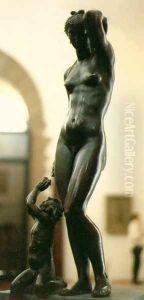
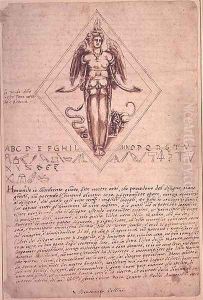
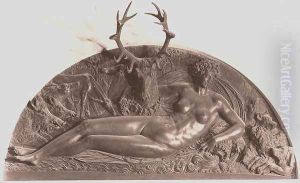
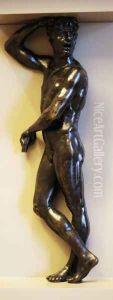
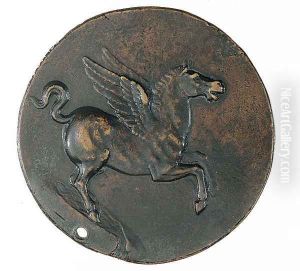
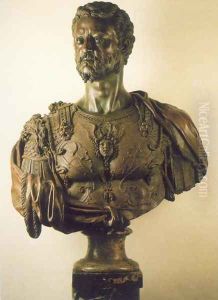
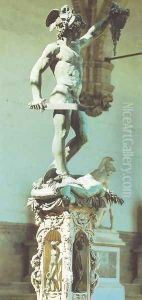
![Satyr [detail]](https://www.niceartgallery.com/imgs/139456/s/benvenuto-cellini-satyr-detail-45812e2a.jpg)
